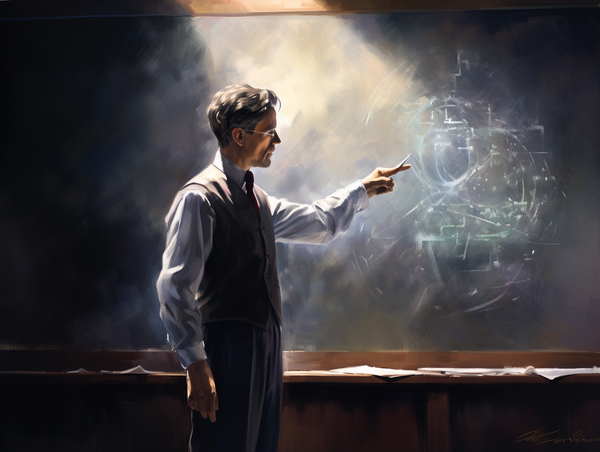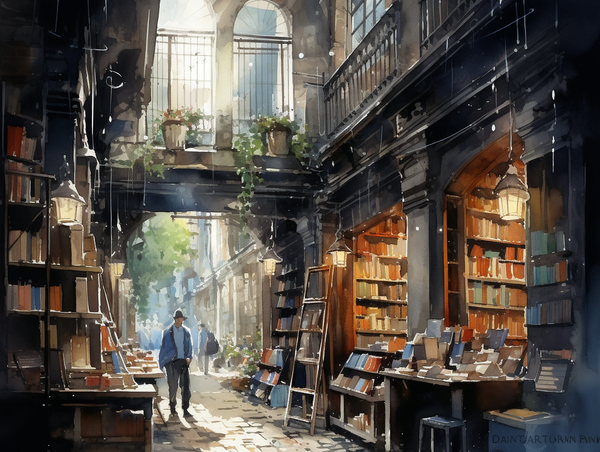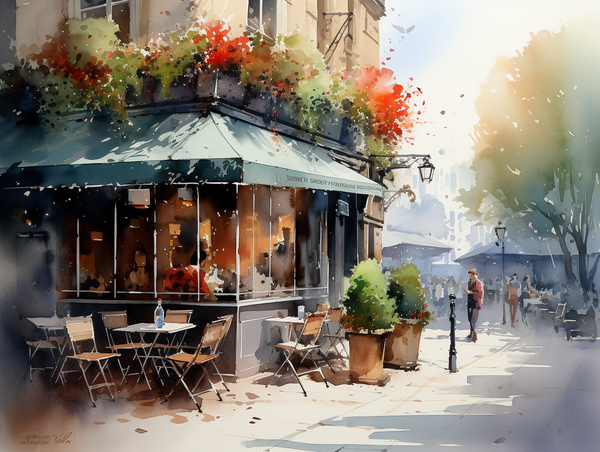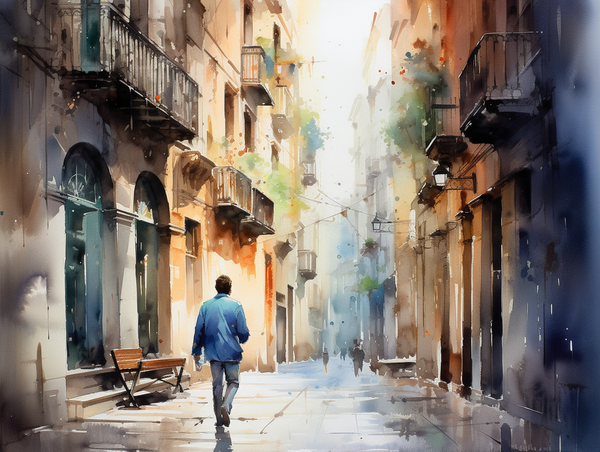The art of waiting in line
When the line moves, move with it. Not with the hurried shuffle of obligation, but with the deliberate steps of someone with purpose. There is a rhythm to a good line, a pulse that beats. Find it
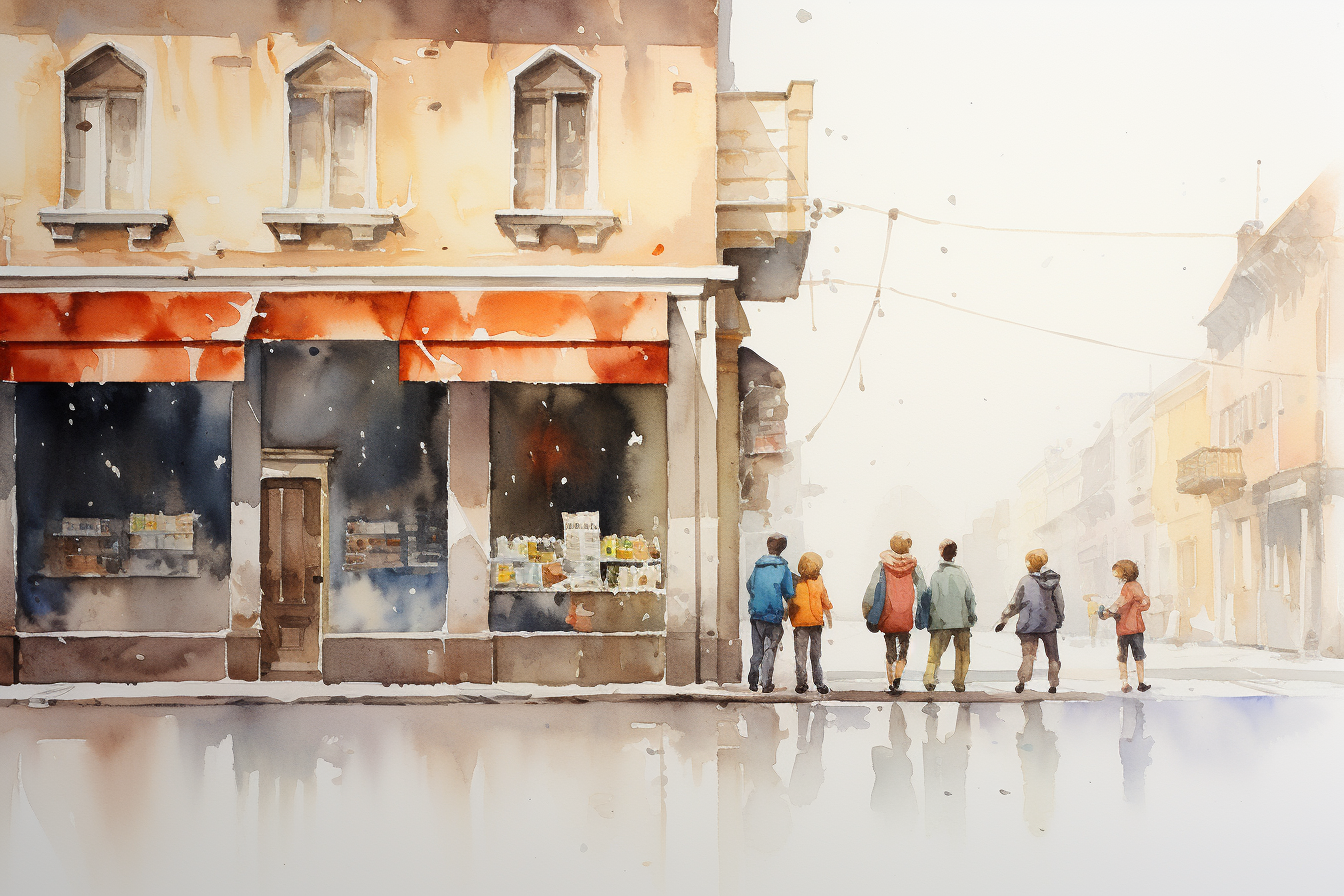
Begin with the breath.
This is the secret that monks have known for centuries but that somehow eludes us when we find ourselves behind seven people at the post office, each one clutching parcels like life rafts.
The line—that most mortal of inventions—stretches before you. A pilgrimage in miniature.
No amount of philosophical reframing can disguise the fact that waiting in line is excruciating. Your lower back begins to scream in indignance almost instantaneously. A dull throb that radiates outward like ripples in a stagnant pond. Your feet, imprisoned in shoes begin to whisper complaints, that grow steadily louder.
Time itself seems to congeal around you. Thick, like cooling wax.
Boredom arrives next. It hovers like a bee inside your skull. Your mind finds itself reduced to grasping at straws . Dopamine is sparse. You envy that potted plant in the corner. It's not waiting for anyone.
It has already arrived.
But you need to transcend. To survive. You need to abandon the notion that waiting is a theft of your time. It makes the wait so much more excruciating. Shift your weight from one foot to the other, not frantically as though standing on hot coals, but slowly, deliberately—a private waltz in a public space. Roll your shoulders backward in small circles, feeling the tension releasing. Curl your toes inside your shoes, then spread them wide, a secret stretching no one else can see.
Glance at your fellow "linesmen" in this shared journey. Most stand with their spines curved into question marks, faces illuminated by the blue glow of mobile screens—minds lost in endless scrolling of social feeds offering temporary escape from this painful drudgery.
You could join them in this exodus from the NOW—and sometimes, when the line stretches toward infinity and your reserves of mindfulness have been depleted, you should. There is no shame . But when you emerge from these temporary shelters, plant your feet and feel the floor beneath you—tile, perhaps, or concrete worn smooth by countless shuffling feet.
This ground has supported millions before you and will cradle millions after.
You are part of a great lineage. Of "waiters".
Hunger will find you eventually—as it always does in a line. When you discover that mangled granola bar, forgotten and crushed in the bottom of your bag, it is a feast worthy of kings. Eat slowly. Each bite has its own texture, its own particular sweetness.
Chewing can be therapeutic and meditative when you have nowhere else to be.
Lift your gaze. Marvel at the human theatre arranged around you. The elderly woman with arthritic hands clutching her purse which contains eighty years of laughter, heartbreak, Tuesday afternoons, and morning coffees. The businessman in the pressed suit who has just learned that he's going to be a grandfather. The teenager with headphones who is nursing a heartbreak from the night before.
When the line moves, move with it. Not with the hurried shuffle of obligation, but with the deliberate steps of someone with purpose. One step closer. There is a rhythm to a good line, a pulse that beats. Find it. Join it. Let your body absorb the rhythm.
When fatigue comes—that leaden sensation that seems to pull downward on every atom of your being—do not fight it directly. Give in. Fatigue is part of the discovery that the longer you wait, the deeper your roots grow.
If someone cuts in front of you—and invariably, someone will—resist the urge to clutch your indignation. Consider that perhaps they carry a burden you cannot see. Maybe their haste is born of necessity rather than entitlement. And even if, it is the latter, letting go has a sense of freedom where the delay of another extra minute is an added minute of grace.
When the irritation hits like bile in your throat—when the child behind you kicks your ankle for the third time, when the person ahead smells of cigarettes and something indefinably sour and when the cashier seems to be moving with the pace of a sloth on sedatives—this is when you are at peak performance.
This is PEAK waiting
Breathe into the irritation. Feel its texture, its temperature.
It is as transient as the line itself.
When conversations bloom around you—as they sometimes do in situations of shared waiting—listen. Not with the half-ear of someone snarking faults in a stranger's logic, but with the full-bodied attention of someone receiving a rare gift. These ephemeral connections between isolated islands of consciousness, are what our ancestors knew as community before we walled ourselves away in digital fortresses.
Perhaps you'll feel compelled to join in. If so, speak from where in your soul honesty resides. A true moment exchanged in a line might be remembered long after whatever you're waiting to purchase has been consumed, used, and forgotten.
When the numbness comes—that peculiar absence of sensation that follows prolonged standing—wiggle your toes. Bend your knees slightly, then straighten. Roll your ankles in small circles. These tiny movements are acts of rebellion against the stasis imposed on you.
When at last you reach the front—that sacred threshold where waiting transmutes into receiving—look the person serving you in the eyes. Really look. Remember that they have been standing while you've been moving, that they have witnessed the same drama repeat itself hundreds of times today. Offer them the gift of your full presence, even if just for the brief transaction.
And then, when you turn to leave, pause for one moment at the threshold. Notice how your body, released from its linear confinement, expands outward into space with something akin to joy. Most leave immediately, already thinking of what next. They pass the time warp having spent years of their life in lines without ever having truly waited in one. But you—you find a way to reclaim the in-between spaces. Those parentheses in the text of your life that most people skip over in their rush to reach the next chapter. And in doing so, you discover that life is a single, continuous unfolding of experiences in which every moment—even those spent in line at the post office—contains the possibility of wonder.
So. wait well.
The line is long. True.
But none of us knows how much time we have left in it and when our time is up we wont have anyone left to wait upon.
I write ‘cos words are fun. More about me here. Follow @hackrlife on X or subscribe to my blog

